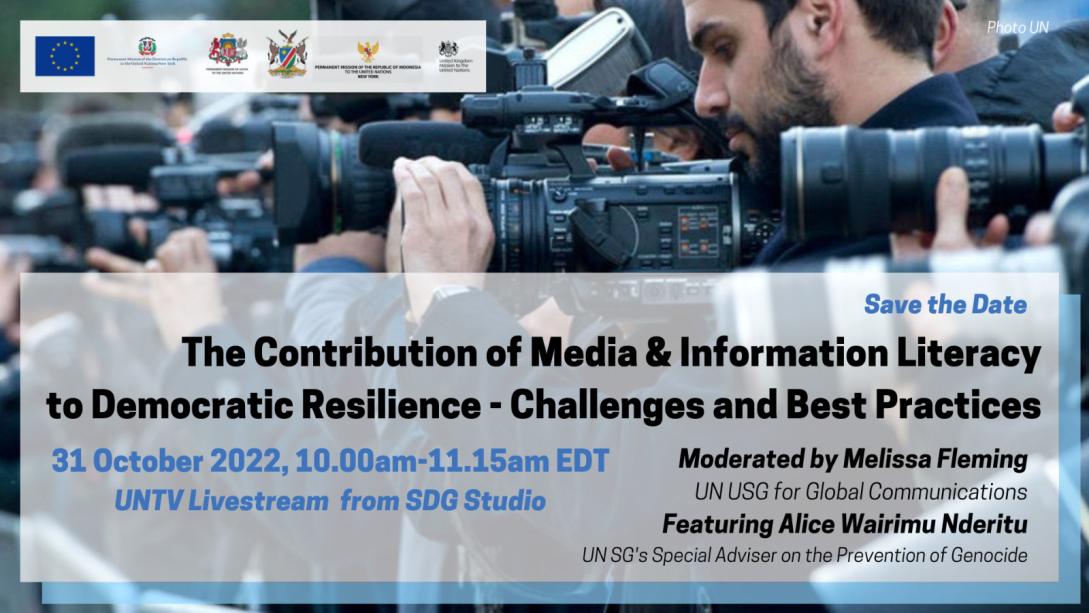The Contribution of Media & Information Literacy to Democratic Resilience – Challenges and Best Practices

CONTEXT
On 21 March 2021, the UN General Assembly unanimously adopted the Resolution (A/75/L.68) proclaiming a Global Media and Information Literacy (GMIL) Week, from 24 to 31 October every year. The Resolution stresses the important role all Member States, along with the media, play in tackling the scourge of disinformation, while upholding the freedoms of expression, information and thought, as well as the unrestricted access to accurate, scientific and verifiable sources. While the Covid-19 pandemic brought an unprecedented rise in disinformation, endangering the lives of people all over the world, disinformation and misinformation affect multiple areas. Social media platforms have an enormous multiplier effect: they offer an immense potential but also bear an increasing responsibility, including via their business models, in the spread of mis-disinformation.
Free and independent media are a cornerstone of every democratic society. They have a critical role in providing reliable information and thus strengthening the resilience of democracies, both in the context of regular democratic cycles – including electoral processes – and in times of crises (man-made or natural).
THE AIM
This side event aims to illustrate how international organizations, states, media organisations and civil society can best contribute to enhanced media and information literacy and thus to more resilient democratic societies. Speakers will consider examples of cooperation between governments and the media, reflect on lessons learned and explore ways of cooperation for advancing media and information literacy.
In this context, speakers will address some aspects of the challenging media environment – security risks and restrictions to fundamental freedoms, manipulation of information and disinformation, as well as hate speech – and the associated dangers not only for journalists, but also for humanitarian workers as well as civilians.
Moderated by Ms. Melissa Fleming, UN Under-Secretary-General for Global Communications (in person)
Panel
- Ms. Alice Wairimu Nderitu, UN Secretary-General’s Special Adviser on the Prevention of Genocide (in person)
- Ms. Marielza Oliveira, Director for Partnerships and Operational Programme Monitoring UNESCO (virtually)
- Mr. Christophe Deloire, Secretary General, Reporters Sans Frontières (RSF) (virtually)
- Dr Rihards Bambals, Head of Strategic Communications Department, State Chancellery of Latvia (virtually)
Remarks by
- H.E. Mr. Neville Gertze, Ambassador, Permanent Representative of Namibia to the UN (in person)
- H.E. Mr. Silvio Gonzato, Ambassador, Chargé d’affaires, a.i., EU Delegation to the UN (in person)
- H.E. Mr. Arrmanatha C. Nasir, Ambassador, Permanent Representative of Indonesia to the UN (in person)
PRACTICAL INFORMATION
OVERVIEW
Livestream via UNTV - https://media.un.org/index.php/en/asset/k1p/k1p9jd6kx5
